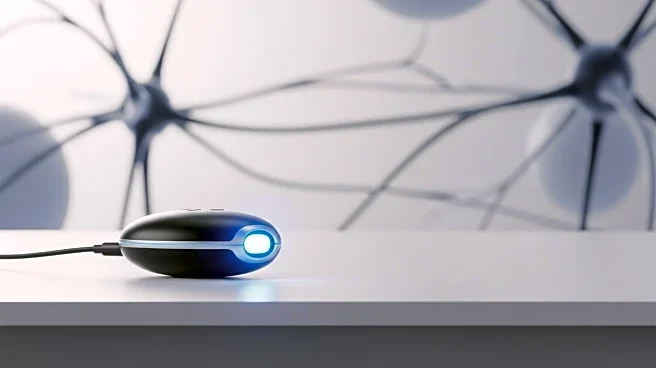What is the story about?
What's Happening?
Parasym has introduced Nuropod, a groundbreaking non-invasive vagus nerve stimulation device in the U.S. that does not require surgical implantation. The device utilizes Auricular Vagal Neuromodulation Technology (AVNT) to target the vagus nerve through the ear, aiming to alleviate symptoms such as persistent fatigue, anxiety, and inflammation. According to Dr. Elisabetta Burchi, Parasym's Head of Research, the device is designed to help individuals reset their nervous systems, addressing the widespread issue of sleep debt and fatigue among Americans. Nuropod is backed by over 50 clinical studies, demonstrating its effectiveness in increasing vagus nerve activity, reducing inflammation, and improving sleep quality.
Why It's Important?
The launch of Nuropod represents a significant advancement in non-invasive medical technology, offering a viable alternative to traditional surgical vagus nerve stimulation methods. This development is particularly relevant given the high prevalence of fatigue and sleep-related issues in the U.S. population. By providing a non-surgical option, Nuropod could potentially improve the quality of life for many individuals, including those suffering from conditions like long COVID and POTS. The device's FDA Non-Significant Risk Designation further underscores its safety and potential impact on public health.
What's Next?
Nuropod is available direct-to-consumer for $900, making it accessible to a wide range of users, from professional athletes to individuals seeking relief from chronic symptoms. As the device gains traction, it may prompt further research and development in non-invasive medical technologies. Additionally, collaborations with institutions like Harvard and UCLA could lead to expanded applications of AVNT in various health conditions, potentially influencing future healthcare practices and policies.
Beyond the Headlines
The introduction of Nuropod highlights the growing trend towards wearable health technology and personalized medicine. As consumers increasingly seek non-invasive solutions for health management, devices like Nuropod could pave the way for more accessible and user-friendly medical interventions. This shift may also raise ethical and regulatory considerations regarding the use and monitoring of such technologies, necessitating ongoing dialogue among healthcare providers, policymakers, and the public.
















